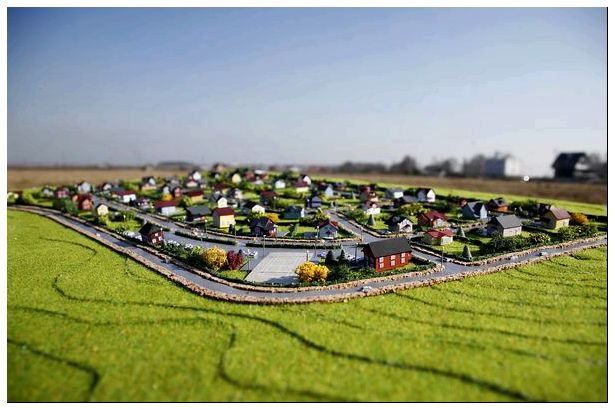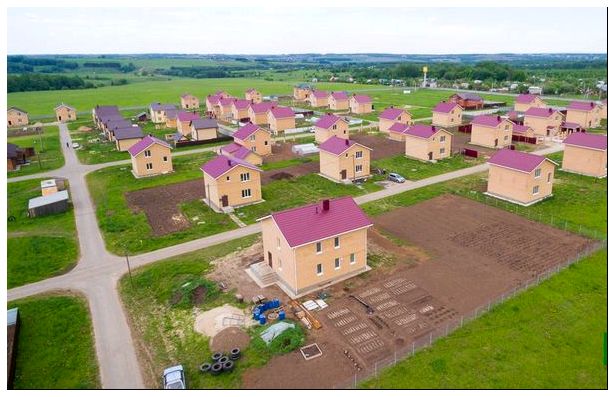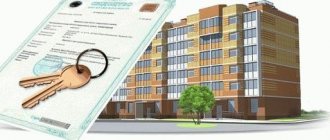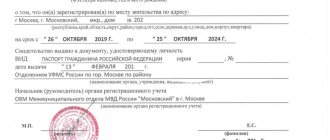Since the times of the USSR, numerous partnerships (cooperatives) of summer residents, gardeners and gardeners have existed in the country. To carry out gardening and urban development, these partnerships were given lands on the basis of common ownership, and the legal construction of buildings was practically impossible. In 2017, the state actually approved the “dacha constitution” - Federal Law No. 217-FZ of July 29, 2017 radically changes the conditions for the existence of DNP and SNT, as well as the procedure for registering rights to land plots and buildings of citizens.
Get an estimate of the cost of this service using our price calculator - here
What are DNP and SNT
Existing legislation provides for several organizational and legal forms for the association of summer residents, gardeners and gardeners. Among them, partnerships in the form of DPP and SNT stand out, which are characterized by the following nuances:
- dacha non-profit partnership (DNP) - with a cooperative form of land ownership, it was possible not only to grow agricultural products for personal consumption, but also to erect buildings for temporary residence;
- garden non-profit partnerships (SNT) were created for the purpose of cultivating land and growing agricultural products, and citizens had the right to erect only outbuildings;
- for the forms of SNT and DNP, agricultural land was provided, and their intended purpose did not allow the construction of houses for permanent residence.
Since the adoption of the Land Code of the Russian Federation, the differences between SNT and DNP have ceased to exist, however, it was impossible to confirm the legality of the construction of buildings before the adoption of the “dacha amnesty” program. As part of this program, citizens were given the opportunity to legalize self-construction on the lands of these partnerships in a simplified form, as well as to allocate a land plot and register ownership of it.
Until December 2020, a simplified form of legitimizing buildings and registering land rights meant citizens drawing up a declaration for buildings and a site layout plan. Since the cadastral authorities of Rosreestr did not have the right to control the correctness of filling out these declarations and diagrams, numerous errors were made when registering rights:
- discrepancy between the declared and actual area of the site, as well as its boundaries;
- inaccurate indication of the size of country houses and outbuildings;
- the imposition of the boundaries of the site with adjacent land plots, since the coordination of boundaries under the “dacha amnesty” program was not provided for.
To solve these problems, since January 2020, the rules for cadastral registration and registration of real estate in the territories of SNT and DNP have changed significantly. To enter information into the state register of the Unified State Register of Real Estate and obtain title documents, citizens must receive a boundary and technical plan through a cadastral engineer, and declaration forms and site layout plans have been cancelled. This allows you to implement the basic principles of Federal Law No. 218-FZ - the objectivity and reliability of cadastral information for each property.
Expert commentary . Currently, the “dacha amnesty” program has been extended until 2020 for most non-profit partnerships, including SNT and DNP. However, the legislator has set a deadline for conducting cadastral registration of plots and buildings - no later than January 2020. After this period, any disposal of dacha real estate will be impossible - donation, inheritance by will, sale, etc.
What are SNT and DNP
DNP is an ideal option for organizing dacha activities
What is a non-profit partnership? Country non-profit cooperation is a group consisting of three or more co-founders, summer residents, who on a collective basis solve common economic, administrative and social problems.
DNP lands are distinguished by 2 main features:
- First of all , they are noted by the authorities of the appropriate region or the state body for the distribution of land.
- Secondly , they are used for the management of country houses, gardening and vegetable gardening and the construction of houses outside the city.
With all this, the marked plots of land may belong to the area of a nearby residential area or be part of agricultural land.
Fundamental point: Within three years from the date of registration of the DNP, all plots must be developed - at a minimum, dachas and houses for summer residence must be built on them.
The entire territory that belongs to the DNP is mainly demonstrated in 2 forms of ownership:
- Private – plots privatized by cooperation participants.
- General – areas of common use (roads, recreation areas, waste collection areas, fences, ponds, etc.).
Registration of land within the framework of dacha cooperation seems to be a much more convenient and common procedure than registering a plot for the purposes of individual housing construction. This is one of the reasons for the significant popularization of DNP in our time.
Opening of a cafe. drawing up a business plan for organizing a cafeteria

Country non-profit cooperation creates its own central governing body from its own participants - the Board. It is formed selectively, and its composition is updated at certain time intervals. The Board embodies the DNP and makes decisions that are important to all its participants.
Members of the DPP first receive plots of land for use by paying membership fees to the DPP Board. Later there is the possibility of privatizing your own land.
Fundamental point: In the functioning of dacha cooperation, one can find benefits for all its participants. It is in the ability to timely and effectively resolve issues that are significant for all participants in the DNP (irrigation, communications, construction of roads, supply of security), as well as promoting one’s own interests at the level of power structures.
Rules for registration of DNP and SNT since 2018
From January 2020, all existing SNT and DNP must be transformed into vegetable gardening or horticultural partnerships. For newly created citizens' associations, it is necessary to initially select one of the indicated forms. It must be taken into account that the gardening partnership can subsequently be transformed into a real estate owners' partnership; this requires compliance with the following conditions:
- the partnership must be located within the boundaries of populated areas;
- all residential buildings must receive the status of residential buildings;
- for each land plot it is required to change the type of permitted use to individual housing construction.
To create a partnership under the new rules, the initiative of three or more citizens is required. The specified non-profit organization will be registered as a legal entity, and the governing bodies include the chairman of the board, the audit commission and the general meeting of participants.
Instead of the term “residential building,” Federal Law No. 217-FZ uses the definition of “garden house,” which is intended for temporary (seasonal) stay of citizens. Also, on the lands of gardening partnerships, it is possible to build individual residential buildings for permanent residence of citizens. According to the new law, the common property of a partnership cannot be distributed among individual participants (for example, common water or electricity supply facilities).
Expert commentary . When creating a partnership, a list of its participants is compiled, and the cadastral number of the plot is also indicated. This means that before land is actually allocated for gardening or vegetable gardening, boundary work must be carried out. After determining the boundaries of the site, the cadastral engineer will prepare a boundary plan, and the site will be registered and assigned a cadastral number.
How to create an SNT step by step instructions 2020
Why do I need a gardening society? I really wouldn’t want to do it, I need to change my plans for gardening and gardening, as it will be now according to the new law. firstly, I think that at public hearings they will be forced to do it, and secondly, no one yet knows how construction will be allowed under the new law, and in the agricultural sector there is nothing to do with OKS
- the submitted documents are outdated or contain false information;
- there are claims against the new SNT from third parties - they do not agree with the reorganization of the previous organization and have filed documents to appeal to the court;
- there is no written consent of all SNT founders;
- documents were submitted to the wrong registration authority;
- There are no participants, users or founders in the partnership.
We recommend reading: Construction Control Kosgu 2020
Cadastral registration and land surveying from 2020 in DNP and SNT
To transform existing DNP and SNT, or register a new partnership, land plots of citizens must be registered in the cadastral register. If such a procedure has not previously been carried out in relation to the site, it is necessary to carry out land surveying and determine its boundaries. Carrying out boundary work on the site in 2017-2018 is carried out in accordance with the norms of Federal Law No. 218-FZ, taking into account the following features:
Registration in DNP and SNT since 2018
Currently, registration in garden or private houses located on the territory of SNT and DNP is possible provided that the specified object is suitable for permanent residence of citizens. The burden of proving this fact lies with the owners of the buildings. In practice, this is only possible in court, since legislative acts do not regulate this procedure.
With the adoption of Federal Law No. 217-FZ, the registration procedure in garden or residential buildings should be simplified, but this will require the adoption of by-laws. The explanatory note to the draft of this regulatory document provided for an application-based registration procedure, which eliminates the need to go to court. Registration will be possible only if the building belongs to real estate, i.e. cannot be moved due to its inextricable connection with the land plot.
What are the advantages and disadvantages of running a business based on DNP?
Before launching full-scale activities of an entrepreneur on the basis of DNP, it is important to evaluate all the disadvantages and advantages of this process.

The benefits of organizing a business within the framework of dacha cooperation are clear:
- First of all , the price of land plots is low, since very often such structures are located outside the boundaries of residential areas, and their land is less fertile than that used in the framework of individual housing construction (IHC).
- Secondly , you can buy a large plot of land to carry out your activities (with individual housing construction there are significant regional restrictions).
- Third , the status of a legal entity and the presence of a governing body will allow you to quickly solve all administrative, economic and social problems.
- Fourth , on the basis of a built dacha, you can obtain registration in the region (obtaining a residence permit is also very likely, but this process is not easy).
- Fifthly , within the framework of the DNP, lower payments for utility services help reduce costs.
It should also be noted that, unlike individual housing construction, site development projects and drawings of dacha houses will need to be coordinated only with the board of the DNP (basically, all structures are made within the framework of the movement to the general style of architecture).
It is impossible not to mention some significant disadvantages of organizing a DNP instead of a business entity, and specifically:
- Not all remote areas have problems with providing the necessary communications to out-of-town cooperation.
- Providing electricity, water, and gas may involve a lot of bureaucratic procedures.
- Difficulty obtaining registration.
At the same time, in case of acquisition of land into ownership, it is inherited. The shares of the participants in the partnership are also transferred to the direct heirs of the deceased.
How to open a consignment store for children's goods?
In general, organizing a DNP as a business can be considered instead of a very profitable option, since in this case one can see significant cost savings: cooperative members get plots of land at a lower price, and the payment for housing and communal services is the smallest.
Basic documents and useful tips
To reorganize SNT or DNP, as well as register a new partnership, it will be necessary to develop and adopt the charter of this non-profit organization. For this purpose, a general meeting of participants is held, which makes decisions on the following issues:
- approval of the charter of the partnership;
- a list of participants and information about land plots located within the territory of the partnership;
- structure of management bodies and approval of their composition.
All further issues related to the management of the partnership will be decided by the chairman of the board or the general meeting (the division of powers will be recorded in the charter).
To register land plots and buildings for cadastral registration, citizens will need the following documents:
- an extract from the register of SNT or DNP participants (this document is issued by the board at the request of citizens);
- a copy of the administrative act on the allocation of land for SNT or DNP;
- layout of the site within the boundaries of the partnership;
- boundary plan for the site and technical plan for the building.
Cadastral registration is carried out free of charge, state duty is not paid. To register property rights, the state duty will be 2,000 rubles for each object. After registering the land plot and/or building, the property is assigned a unique cadastral number, which will remain unchanged for the entire period of its existence. The applicant is issued an extract from the USRN, which is a document of title.
Despite the advantages provided by the “dacha amnesty” program, in practice citizens are faced with the problem of lack of original documents for land. This is due to the fact that most SNT and DNP were formed during the existence of the USSR. In the absence of archival documents, SNT participants have to turn to the courts.
Also, for many partnerships of gardeners and summer residents, the land is not demarcated, i.e. not registered in the cadastral register. The SNT board can act in the interests of the participants and carry out land surveying of all plots, but in practice, each citizen is forced to independently apply for cadastral work.
Expert commentary . Disagreements between neighbors of adjacent plots regarding common boundaries can pose a serious problem. Over the years and decades of the existence of SNT, deliberate or accidental self-seizure of the territory of someone else’s site could occur. If a dispute between neighbors regarding common boundaries is brought to court, the original documents on the distribution of shares among the participants of the partnership will be considered. A cadastral engineer who carried out land surveying on the territory of SNT can act as an expert in court.
What business variations are possible within the framework of DNP?
DNP in the usual sense is engaged in gardening work. However, within the boundaries of this non-profit association, it is possible to organize several options for a profitable business.
In general, all business ideas based on DNP are built on the simple assumption that cooperation is carried out by several co-founders, investors who receive and privatize a land plot.
In its area they can do:
- Collective processing and cultivation of fruits and vegetables, production of seedlings and seeds.
- Livestock farming work and processing of its products.
- Developing places for a pleasant stay for city residents in the event that the DNP is located in a beautiful countryside surroundings.
- Renting out plots or selling them to new participants (such a transaction will be very expensive for the one in which the co-founders acquired this land without communications and buildings.
Fundamental point: Operations with plots of land are not considered an illegal activity for the DNP: thanks to legislative regulations, the permitted types of activities of dacha cooperation include operations with real estate and its management, as well as management of the operation of non-residential assets.
Business to your liking
It remains to add that the members of the cooperation bear joint responsibility for their own actions, so organizing a common business is a reasonable decision against this background. In Russian practice, there are options for organizing gardening and vegetable farming farms with the emergence of a point for collective processing and marketing of products.
conclusions
Get an estimate of the cost of this service using our price calculator - here
With the adoption of Federal Law No. 217-FZ, a transition period was established for the transformation of SNT and DNP - no later than 2024. During this time, partnerships will exist according to the previous rules, however, each owner of a plot and buildings is required to undergo cadastral registration and register rights to real estate in Rosreestr no later than January 1, 2020. Violation of this legal requirement will result in the impossibility of selling, donating or inheriting the plot and property.
Creating SNT step by step instructions 2020
The introduction of this legislation simply shook the gardening world. Until the moment of entry, it was in effect, the terms of which fully regulated the legal relations of citizens having such plots. In mid-2014, the Government of the Russian Federation received an order to develop a draft regulatory act, which should include a comprehensive systematic approach to regulating relations between citizens owning or using land plots, without gaps.
We recommend reading: Transport Tax Lipetsk Region 2020
— — Now the new law “On the conduct of gardening and vegetable gardening by citizens...” 217-FZ leaves only two forms of non-profit associations - a gardening non-profit partnership (SNT) and a gardening non-profit partnership (ONT), which are types of partnership of real estate owners.








